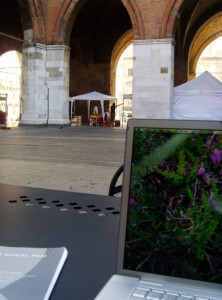Dear Andreina,
I hear that you’ve made the decision to go freelance. How very brave of you, considering that after over a decade of commissioning, you of all people should know how tricky the pitching process can be. So, before you forget what it’s like to be on the receiving end of a freelance pitch, here’s a few choice bits of advice sent with love from me to… well, me.
1: Know your target publication well. Email pitches to the general info@publication.com address go straight into the slush pile. It only takes five minutes to call a magazine and ask who their Features Ed is, and they tend to be curiously impressed by journos who demonstrate the ability to find things out. Another plan – and this is especially daring – you could actually opt to buy the publication in question and read it to get an idea of what they really want.
2: There’s a strong chance nobody will get back to you. Remember how many people pitch per week? You’re one of them now. Bear in mind that radio silence does not mean you are useless. It just means your lucky recipient is stressed and busy, and that the Editor’s voice is screaming louder than yours. A follow up phone call or two won’t go amiss.
3: A follow up call or TWO. Not 20. Restraining orders do not look good on your LinkedIn profile.
4: Some publications do most of their features in house or have a stable of loyal favourites who get all the easy commissions. You’ll need to do something truly unique to impress this lot – like a real life story that blows them away or a memoir only you can share.
5: Glossy magazines don’t like depressing stories. Never have, never will. Even if they are shocking, truly important and need to be shared with the world. That’s what angry blogs are for.
6: Freelance rates have barely gone up in 10 years. You might want to give that Amazon-and-ASOS habit a rest for a while.
7: Remember the joy of freelancing – because it is joyful. One minute you’re interviewing a scary woman in the deep South about her collection of 200 firearms, the next you’re trying to get a celebrity to say something newsworthy during a ‘what’s in my fridge’ interview for the web. You’re up until 2am persuading a real life case study that she can trust you with her story – and then you write copy that makes your editor cry. You can wake up in the morning with a crazy idea in your head and sell it to just about anyone and your career will take you in unexpected directions. That’s why staffers secretly envy freelancers – don’t forget it!
Best of luck,
Andreina

